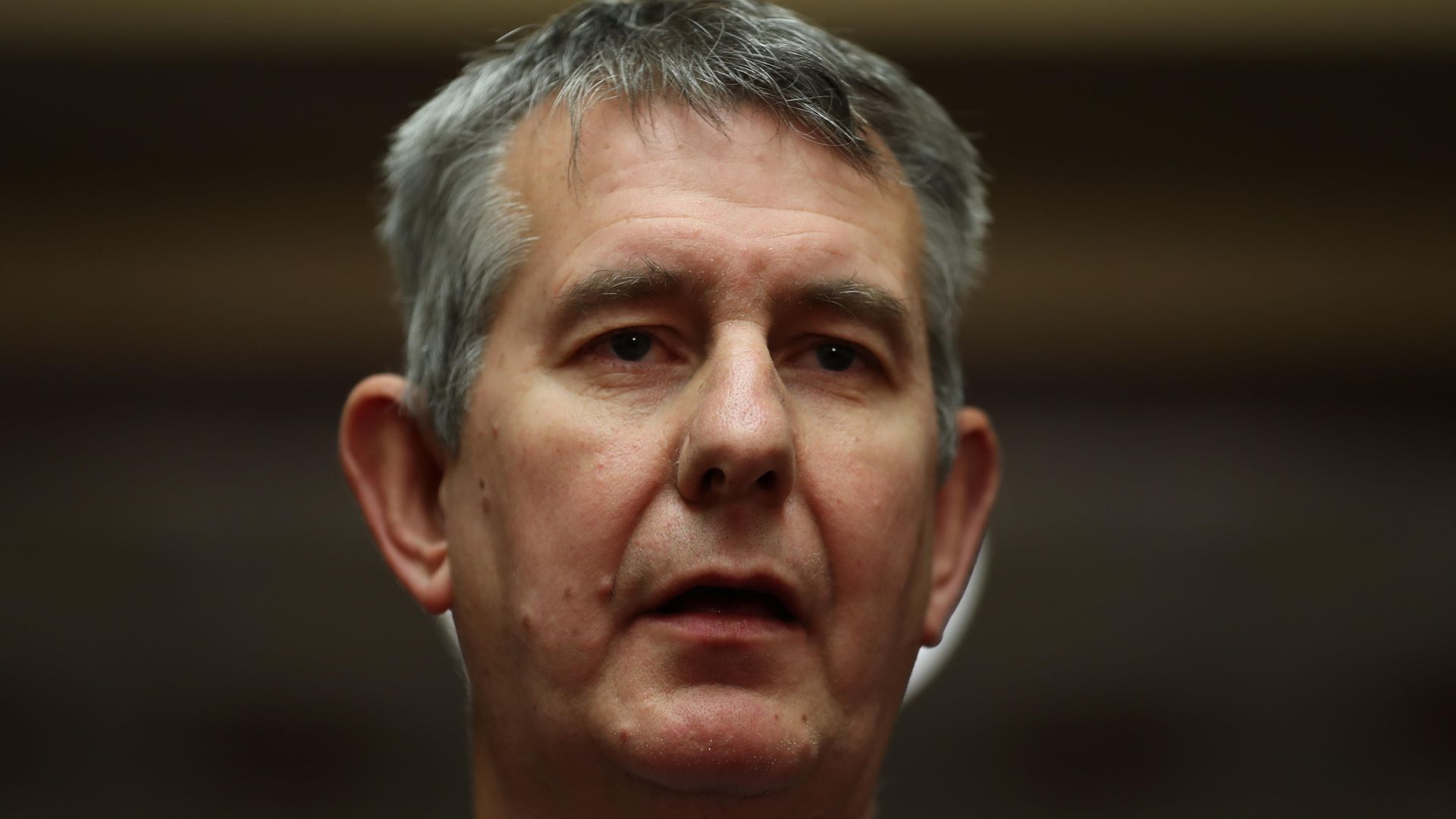
Northern Ireland’s agriculture minister Edwin Poots has claimed the region’s hospitals and schools risk running out of food when post-Brexit Irish Sea trade arrangements are fully implemented.
A grace period that limits the level of red tape required to move retail food products from Great Britain to Northern Ireland runs out at the end of March.
Once that exemption expires supermarkets will have to comply with more rigorous animal health certification processes under the terms of Brexit’s Northern Ireland Protocol.
“It was made very clear to us by the suppliers to both hospitals and schools that if the current arrangement for supermarkets isn’t extended in a few months’ time that they will not be able to supply our hospitals and schools with food,” Poots, a DUP minister, told BBC Radio Ulster.
“That is a major crisis and I have raised this with Michael Gove.
“Seriously, are we going to have a situation where our hospitals and schools are not able to feed the children at school, they’re not able to feed their patients?
“That is an outrageous situation that we in Northern Ireland have been put in as a result of the protocol negotiated between the UK Government and the European Union.”
This comes after the heads of the UK’s largest supermarkets warned of “significant disruption to food supplies” to Northern Ireland because of post-Brexit border arrangements.
Supermarkets in the region have been hit by rows of empty shelves because of the new border regime.
But in a letter to cabinet office minister Michael Gove, the chief executives of Sainsbury, Marks and Spencer, and Tesco UK said shortages would worsen when the Brexit grace period – which has exempted retailers from more arduous red tape – ends on March 31.
The letter said it was “essential we find a long-term solution, agreed with the EU”, before the March deadline.
“We cannon stress enough that we need time to find and implement that solution.”
Warning: Illegal string offset 'link_id' in /mnt/storage/stage/www/wp-includes/bookmark.php on line 357
Notice: Trying to get property 'link_id' of non-object in /mnt/storage/stage/www/wp-includes/bookmark.php on line 37






